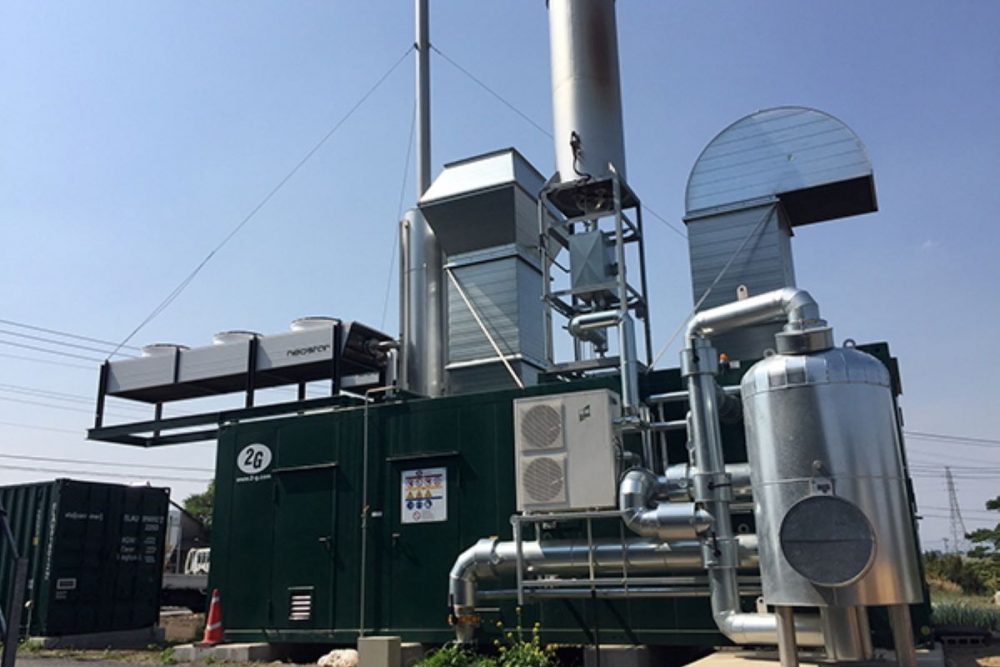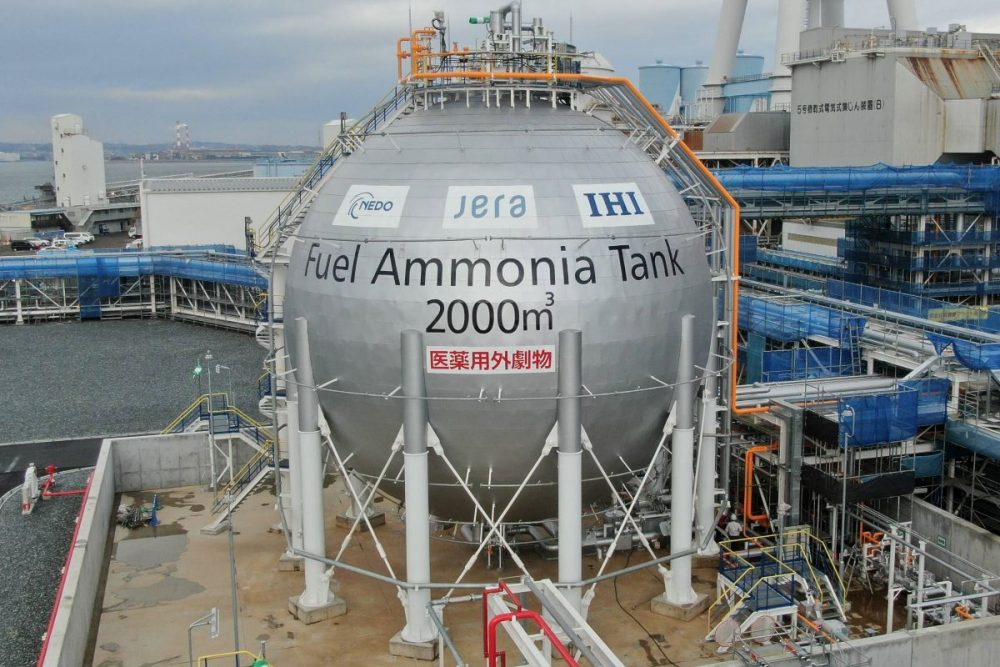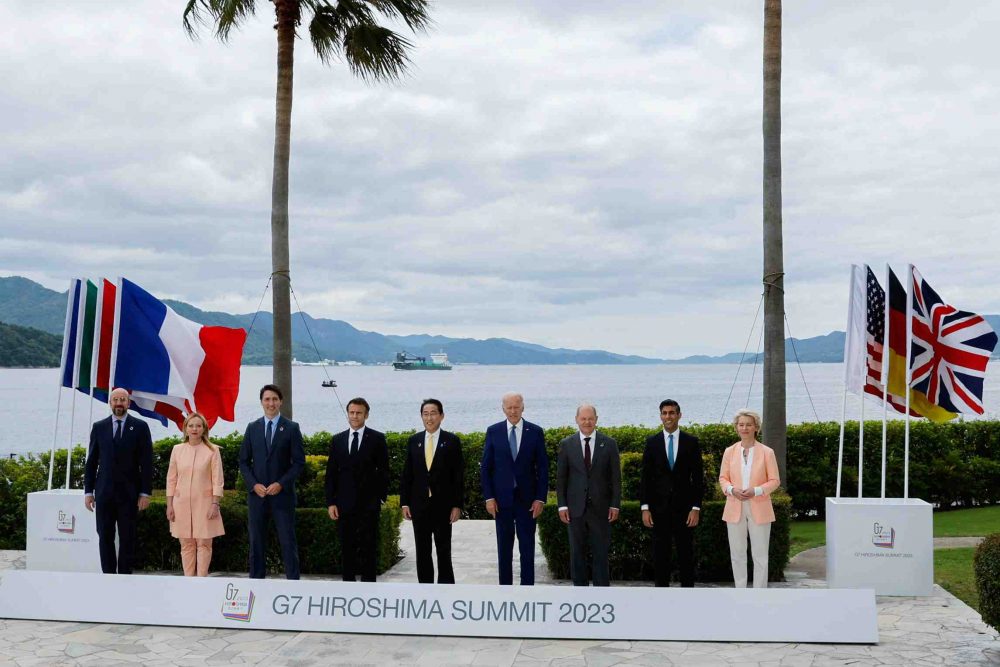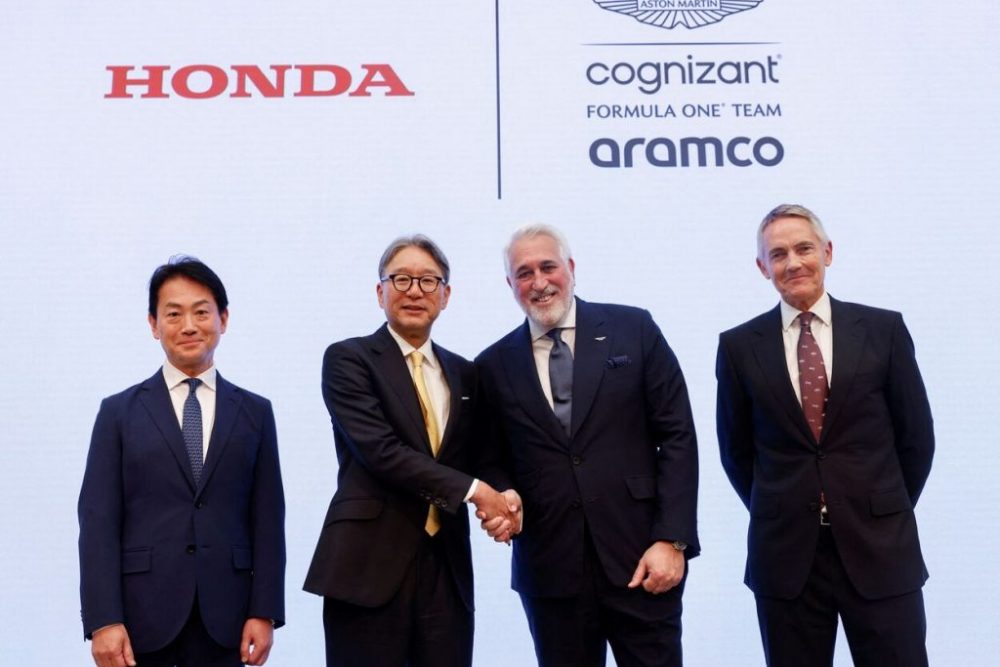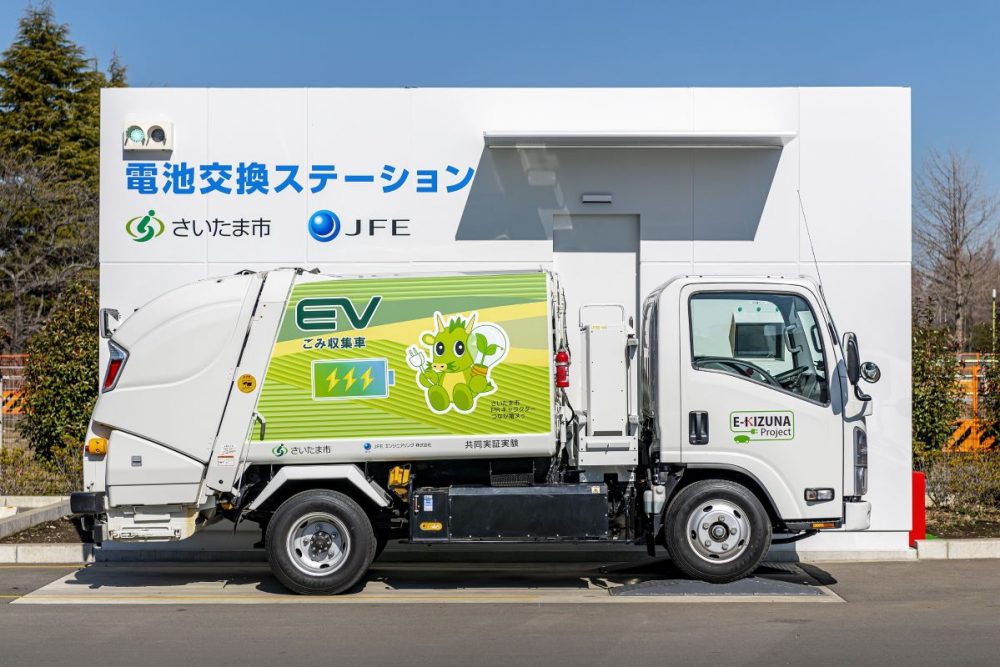Hitachi Zosen Leads Decarbonization of Shipping Industry with Green Methanol Technology
A Hitachi Zosen subsidiary is working on decarbonization of maritime transport by converting ship engines to run on net zero-emission green methanol fuel.
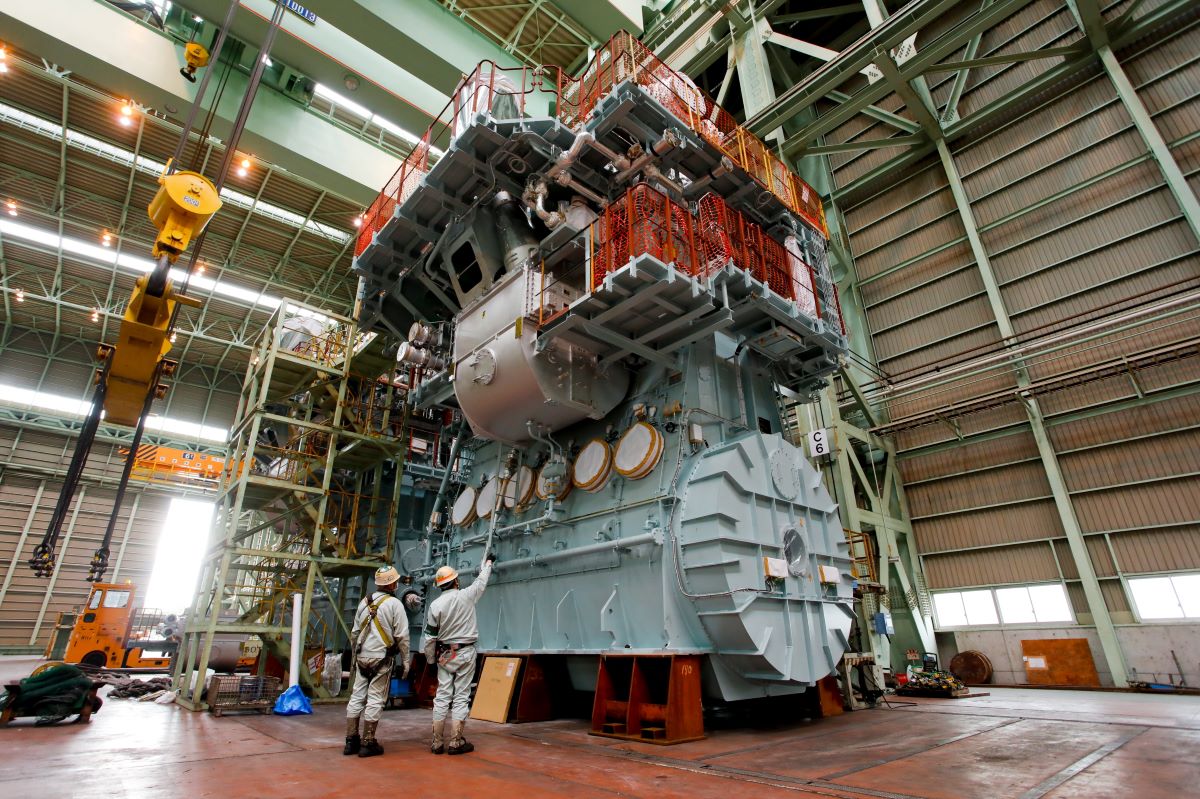
このページを 日本語 で読む
Decarbonization is an urgent priority for the shipbuilding and shipping industry. Companies are transitioning from conventional heavy fuel oil to liquefied natural gas (LNG), methanol, ammonia, hydrogen, and other new types of fuels. Converting ship engines to run on alternative fuels holds the key to cutting carbon emissions.
Testing the Technology
Kumamoto Prefecture-based Hitachi Zosen Marine Engine (HZME), a Hitachi Zosen subsidiary, has partnered with MAN Energy Solutions, a leading German industrial engine manufacturer. They are working to develop the technology to retrofit engines powered by heavy fuel oil into those that operate on green methanol. The companies also aim to produce methanol engines in-house.
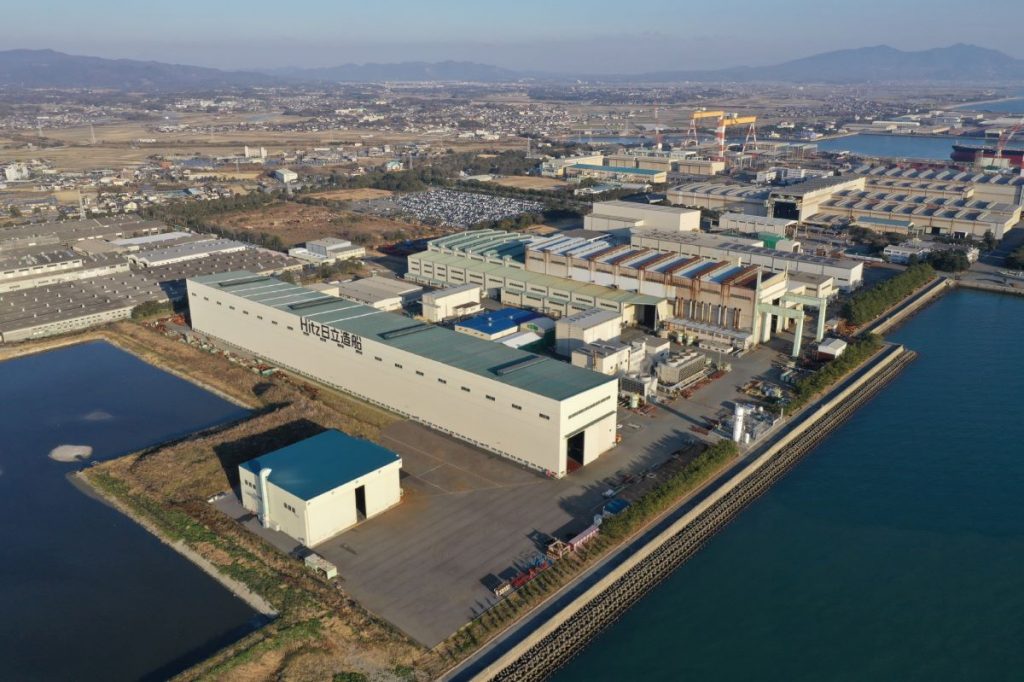
HZME is simultaneously advancing the development of conversion technology and engine production. The company has already received an order from MAN for a test methanol engine. Verification trials of the technology are scheduled for September to November 2024 at HZME's Ariake plant in Kumamoto.
Green Methanol Potential
The raw materials for green methanol include carbon dioxide (CO2) generated from biomass combustion and hydrogen derived from renewable energy sources. Since CO2 is captured during production, greenhouse gas emissions become net zero. Green methanol is also easier and less energy-intensive to liquefy compared to LNG, making it a promising next-generation marine fuel.
Moreover, modifying existing ship engines to run on green methanol is relatively straightforward. It only requires adding injectors and pipes for methanol, along with installing supply facilities and storage tanks on ships. As such, time and cost can be kept at a minimum.
The International Maritime Organization (IMO) has set a goal of achieving net zero greenhouse gas emissions from ships by around 2050. An associated increase in demand for conversion of existing ships is expected. Consequently, HZME and MAN aim to establish their retrofitting technology by the end of fiscal year 2024. In-house engine production is planned for 2026 and beyond.
"We want to develop technology that sets us apart from others and contributes to decarbonization," noted HZME President Jitsuhiro Yamaguchi.
このページを 日本語 で読む






